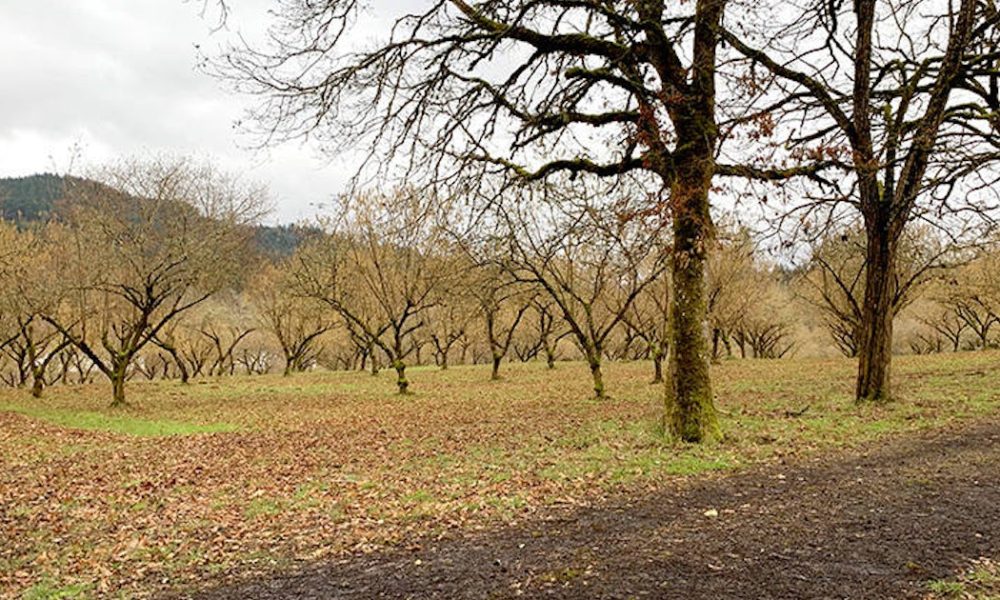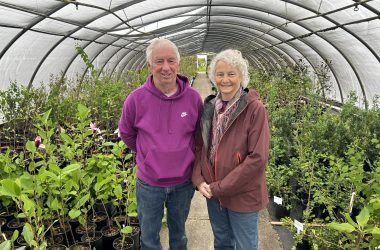 Aliya Hall
Aliya Hall
In Trufflebert Farm’s 10th season, Ken Corricello had read that award-winning chef Charlie Trotter was opening a new restaurant in Chicago. Corricello decided to send him a large sampling of nuts with a note, and two weeks later, on Corricello’s birthday, Trotter called.
”I thought they were pulling my leg,” he said, ”but it was Charlie and he said, ‘These are like a gift from God; how did you ever find me?’”
That night, Corricello’s hazelnuts made the menu and Trufflebert Farm found their niche: Supplying the finest organic hazelnuts to high-end restaurants.
Corricello owns the farm with his best friend, Ted Lang. The two were stationed in Germany together during their time in the military, and they both worked at AT&T in Los Angeles before Corricello and his family moved to the farm full-time.
The property belonged to the family of Corricello’s wife, Renee, before switching hands in 1983. They planted their first round of trees, and added more in 1990. Now there are 2,000 trees producing an annual crop of over 25,000 pounds of Ennis hazelnuts.
Their customer list includes nationally known restaurants such as Chez Panisse, Lucques, Craft Los Angeles and Blue Hill at Stone Barns. However, Corricello was quick to add that the nuts are not ”just for the rich people,” as he invites gleaners every year who take and donate to those in need.
Organic growing was important to him, not just because he was concerned about the pesticides’ effect on his health, but because his 26-acre property was an original Applegate Trail site and the land had been ”clean and pure for as far back as it can go,” he said.
”Land is a living thing,” he added. ”It’s important to nourish it. Mother Nature needs to be protected; we’re doing enough to destroy it. It was important to me and to my partners to keep it as clean and pure as possible.”
When they originally started growing the crop Corricello said he ”didn’t know we were doing it wrong” by, firstly, planting on a hill and, secondly, growing them organically.
”No one was doing it organically at the time,” Corricello explained.
Despite the more recent hazelnut boom in Oregon, Corricello said his farm hasn’t been negatively affected and they still sell everything they produce. In 2017, when the ice storm hit, there were virtually no hazelnuts to sell and Corricello expected to lose the restaurants.
”But we didn’t lose one customer because they think our product is superior,” he said. ”They’re also loyal to us. When people appreciate something and feel it’s special, it’s comforting and nice to get that.”
Corricello said that the taste is superior because they keep their hazelnuts in cold storage before shipping them out. To him, that’s just common sense.
Although Corricello and Lang are now in their mid-70s, Corricello is just now starting to slow down. He found another couple in their 60s who will do most of the harvesting work on Corricello’s equipment, in exchange for a portion of the harvest proceeds. Corricello focuses on shipping the nuts out for processing, as well as marketing.
In the more distant future, he said his daughter is interested in inheriting his share of the company.
”You always think you can go on forever,” he said, ”but you have to cut back at some point in time.”







